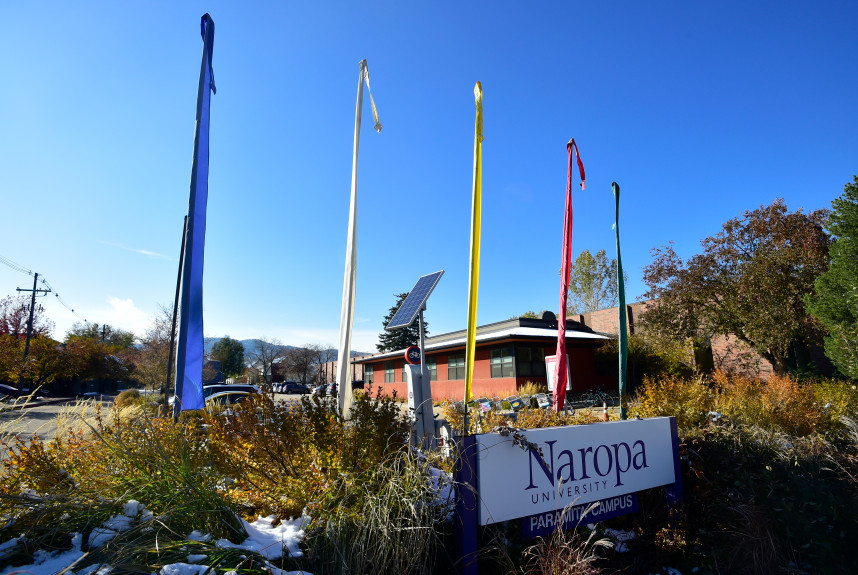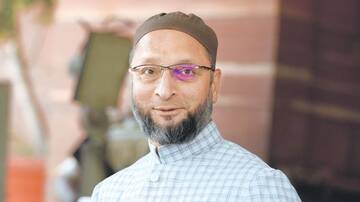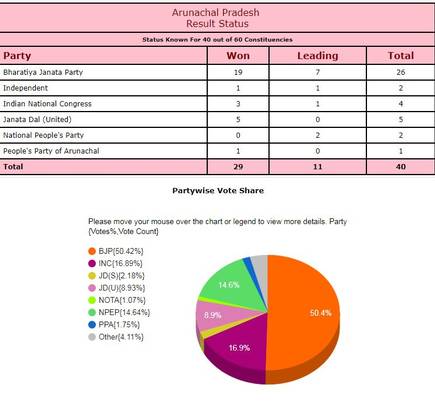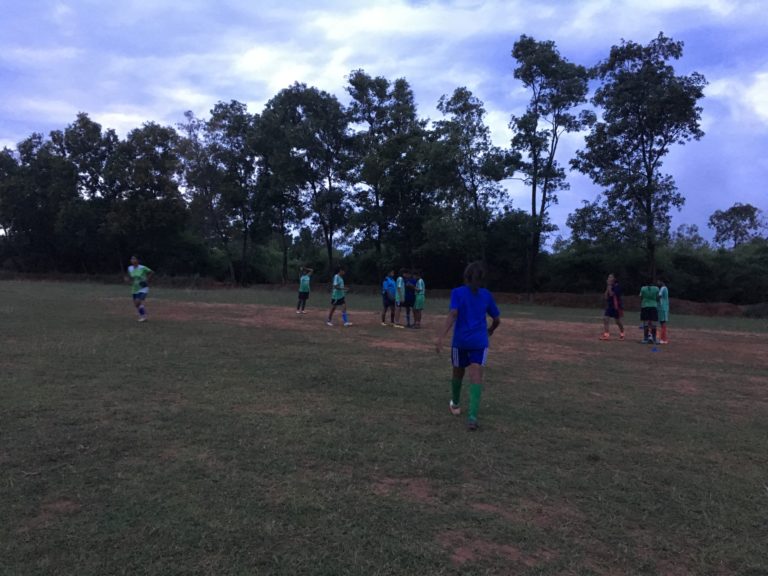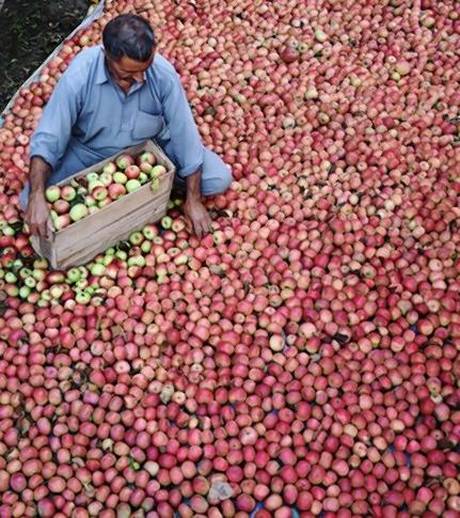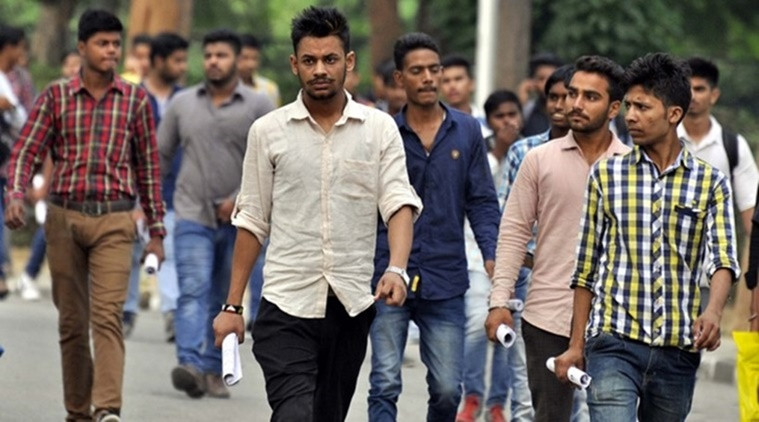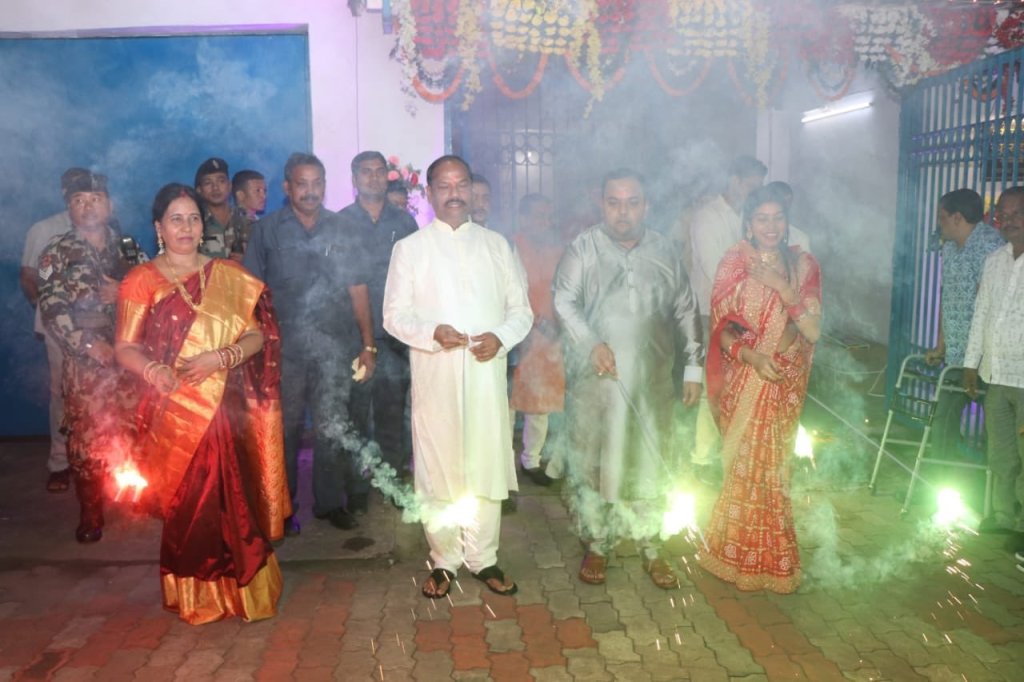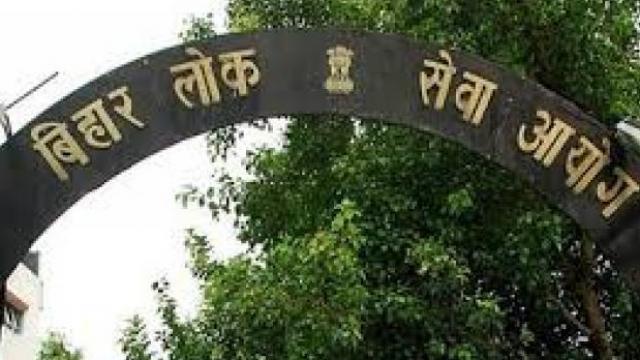Source – aif.org
It’s the second half and the score is tied. In a desperate final attempt to take the match, my teammates run an offensive play, and I’m left behind with the goalie to guard the net. A pass is intercepted, and suddenly, a tiny 13-year-old girl is racing towards me, football in her stride, my teammates trailing behind her. I have 10 seconds to act, and make a move to block her dribble. But Monika—a girl who is half my weight and more than foot shorter than me—easily evades my weak defensive maneuver and scores. Frustrated, I apologize to my teammates for letting them down. “Don’t be sorry,” Shanti, my teammate, quickly responds. “When we fail, we fail together.”
Wise words for a 12-year-old, and certainly unexpected after her new teammate cost the match. It’s moments like these that have defined my first month serving as an AIF Clinton Fellow with Yuwa India, an NGO based in Ormanjhi, Jharkhand. Yuwa uses team sports and education to build character, confidence, and courage in girls from impoverished villages in the area.
From my first day here, it was easy to see that these girls are special. A group of fifteen fifth graders quiz me daily to make sure I still remember their names. Young coaches, who use their wages to pay for their studies, arrange pick-up football matches after school. In my science class, girls are so eager to participate they’ll often call out “Excuse me Jane? May I?” while wildly waving their hands. They even ask me for extra homework. My teammates teach me to say “Get away from me, or I’ll fight you!” in Hindi. Girls applying to college approach me to read their personal statements and ask about majors. While leading a workshop, a girl told me my game was boring, and suggested we try something else. In all of these moments, I’ve seen a confidence that’s contagious, inspiring me to match their energy and enthusiasm. And in a society where they are seldom told they are valuable, these moments are all the more incredible.
In Ormanjhi, being a girl is generally not easy. Five out of every ten girls here are married before age 18, and many girls tell tales of averting child marriage, fighting their parents to maintain their freedom or their right to an education. Some face discrimination at home, who prioritize their brothers’ education over their own; young men are 1.5 times more likely to be literate relative to their female peers. Others talk of harassment from young men for their involvement in Yuwa’s football program, or face challenges at home too terrible to write about. Despite these obstacles, Yuwa girls continue to break gender norms and societal expectations through sheer determination and hard work.
…
I’ve also witnessed countless ‘Yuwa moments’ with Neha Baxla, my project supervisor, who has worked with Yuwa since 2013. Neha’s role in the organization has hugely contributed to its ability to gain acceptance within the community to conduct its football programs and English medium school. As Child Development Officer, Neha’s primary job is to build relationships. She knows every Yuwa girl – all 400+ of them – and can tell you the names of each girl’s parents and siblings, as well as their occupations, assets, and history. She’s the Yuwa School counselor, and girls regularly approach her for various needs, from finding pads to seeking safety from family violence. She also manages Yuwa’s life skills workshop program, training nearly 40 Yuwa coaches, many of them upper class students at Yuwa School, to lead workshops on topics ranging from personal hygiene to financial literacy.
Every social organization needs a Neha. A Jharkhand native who grew up working in rural communities, Neha can connect to beneficiary communities in ways that outsiders cannot. Her full-time job it is to earn their trust, which has been vital to Yuwa’s ability to conduct effective programming. As a part of my AIF Fellowship Project, I interviewed Neha to learn more about her experiences with Yuwa and to better understand the principles that guide Yuwa’s work. Together, we came up with four key areas that other social impact organizations should consider:
Opportunities for leadership—Build a culture where stakeholders have the chance to lead. At Yuwa, the kids make fundamental decisions about how programs are run, such as when to hold practice, when school starts, and save money each week to purchase football equipment. Older students have the opportunity to work as coaches, leading workshop and practices daily for their teams.
Build community – There’s no ‘I’ in team, or in football either. Creating a team setting gives girls the opportunity to learn from each other and grow together.
Provide strong mentors –It’s important for children to have someone to talk to about the questions in their lives, especially when there’s stress at home. Girls regularly reach out to their coaches, teachers, and mentors to ask for help, which is vital to building resilience.
Create value – Provide opportunities for earning. Girls who coach earn enough to support their entire families, and often pay their own school fees. Parents learn to value their daughters.
This is only the beginning of my journey with Yuwa, and I can’t wait to see how this list grows during my remaining eight months here!
